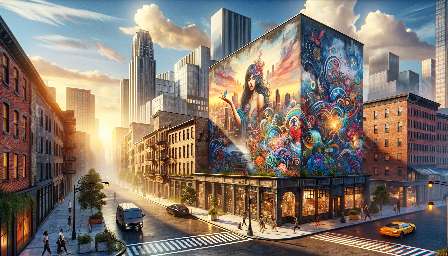Street art has emerged as a potent force for education and community empowerment, particularly in urban spaces. By harnessing the creativity and accessibility of street art, communities can be engaged in meaningful dialogue and collective action.
The Power of Street Art in Urban Spaces
Street art, often born out of marginalized communities, represents a form of expression that is intensely personal and deeply rooted in the urban environment. Its power lies in its ability to challenge perceptions, provoke thought, and amplify voices that are often unheard. Through murals, graffiti, and other forms of street art, individuals and communities can reclaim public spaces, fostering a sense of ownership and pride.
Education through Street Art
Street art can serve as a dynamic educational tool, offering easily accessible lessons in history, culture, and social justice. From the depiction of historical figures to the portrayal of contemporary social issues, street art has the potential to spark curiosity and stimulate critical thinking. By introducing these topics in a visually compelling manner, street art can engage individuals who might otherwise feel disconnected from traditional educational settings.
Community Empowerment and Collaboration
By involving local communities in the creation and appreciation of street art, empowerment and collaboration can be fostered. Street art projects can provide a platform for individuals to share their stories, celebrate their cultural heritage, and address pertinent social issues. This collaborative process cultivates a sense of unity and shared purpose, instilling a sense of pride and agency within the community.
Inclusive and Diverse Representation
Street art has the capacity to amplify marginalized voices and perspectives that are often underrepresented in mainstream media and public spaces. By providing a platform for diverse narratives and experiences, street art can challenge societal norms and promote inclusivity. When individuals see themselves reflected in the art that surrounds them, a sense of validation and representation is fostered.
The Transformative Impact of Street Art
Ultimately, the utilization of street art as a tool for education and community empowerment can lead to transformative societal change. By harnessing the power of visual storytelling and community engagement, street art can cultivate empathy, understanding, and a collective desire for positive change.

